About the 1st of July the troops were brigaded on the Virginia side of the river, and formed into an army, commanded by General McDowell. On the 15th of July we received orders to cross the Potomac the following day, carrying three days’ cooked rations; we marched out, about one o’clock from the yard, very cheerfully, and crossed the long bridge into Old Virginia, singing lustily, “Away Down South in Dixie,” and went into bivouac near Annandale, a distance of eight or nine miles. Here were gathered together an immense body of men, being organized into an army. Our regiment was brigaded under Colonel Burnside, with the First and Second Rhode Island regiments, and the Second New Hampshire. We had no tents or shelter of any kind, only one blanket to cover us, and what was worse than all, no old soldiers to teach us the simple tricks of campaigning comfortably. In the Navy Yard we slept on the bare boards, but that soon became easy for us; now with no boards, and no shelter when it rains, we shall be in a pretty pickle. I once wondered, I remember, what kind of beds we should have in the army; by degrees, I am finding that out, as well as some other things.
In the evening our enthusiasm burst out anew, when we saw the countless camp fires, extending in every direction as far as the eye could reach. Here around us was a veritable army, with banners, opening to our imagination, a glimpse of the glorious pomp, and circumstance of war. Later on, the music of the bands came floating over the gentle summer breeze, while the increasing darkness brought into more distinct relief the shadowy groups of soldiers sitting around the fires, or moving between the long lines of picturesquely stacked arms. At intervals were batteries of artillery, their horses tethered amongst the guns, while in rear of all, just discernible by the white canvas coverings, were wagons enough apparently, to supply the combined armies of the world.
At nine o’clock tattoo was sounded by thousands of drums and fifes, and shortly afterwards the men were mostly asleep. A young fellow named Kline (Dodd having remained in the yard on the sick list) and I slept together, and shared each other’s fortunes; we spread my rubber and woolen blankets on the ground, covering ourselves with his blankets, and without other protection from the weather slept our first sleep in the open air, with the new army of Virginia; we lay for a long time gazing at the starry heavens before we slept, our stony pillows not fitting as well as those we had been used to, but at last we slept, and only awoke at the beating of the drums for reveille.
We turned out promptly, feeling pretty stiff, hair saturated with the heavy dew and generally shaky, but after a good wash at a running brook near by, and a bountiful supply of muddy coffee, were as bright and active as ever. This morning we got many particulars of the approaching campaign; it seems we are to move forward to Centreville, where the rebel army is in position; attack, and if possibly, destroy it, and so end the rebellion. We formed column, and marched soon after breakfast, with bands playing, and colors flying, in a happy frame of mind, without a thought of danger or failure. Nothing barred our progress until we approached Fairfax Court House. Here we found the roads blockaded by felled trees, and it required considerable time to remove the obstructions; shortly afterwards our advance guard exchanged shots with the enemy’s mounted videttes, and a strong line of skirmishers was thrown out, which soon cleared the way and we entered the town in great spirits, the rebels retiring as we advanced, leaving behind them a good many stores, and their flag flying from a pole in front of the court house; it was a blue cross on a red ground, with white stars on the bars. Our men quickly hauled it down and ran up the Stars and Stripes amidst vociferous cheering. The place is a wretchedly dirty, straggling little village, now almost deserted; all the men, and most of the well to do women gone, the best houses generally being deserted. Many of the women stood in the doorways watching us march past, and I am sure, I never saw so many poor, ill fed, dirty looking creatures in my life before. They are what they call poor whites here, and seem hopelessly tired out; they acted ugly, evidently considering us enemies. I fear they had cause subsequently, as many of our men acted like barbarians. We halted, stacked arms, and rested in the main street of the village. As soon as ranks were broken, the men made a dash for the large houses, plundering them right and left; what they could not carry away, in many cases, they destroyed; pianos were demolished, pictures cut from their frames, wardrobes ransacked, and most of the furniture carried out into the street. Soon the men appeared wearing tall hats, women’s bonnets, dresses, etc., loaded down with plunder which they proceeded to examine and distribute, sitting on sofas, rocking chairs, etc., in the middle of the dusty street. What was not considered portable, or worth keeping, was smashed and destroyed; in this general sack the deserted houses came in for most attention, few of those having any one in charge being molested, and I did not hear of any personal indignities. It seemed strange to me the men desired mementoes of something we did not have to fight for, and I took no part or interest in the business. This was Fairfax’s first taste of war at the hands of the enemy, and it must have been decidedly bitter.
We went into bivouac just in front of the town, with headquarters in the village. It seemed as though we had men enough in the encampment to overrun the whole world. If it were not for the numerous trains of wagons needed to supply us, how quickly we could finish up this war. This second bivouac was in all respects similar to the first.
It is reported that General Beauregard, commanding the rebel army, has taken a position just beyond Centreville, and is awaiting our approach, intending to give battle; also that they are strongly intrenched behind breast works and rifle pits. We are told too, that the woods are full of masked batteries, commanding the roads over which we must march, and it looks now as though we should have some severe fighting in a few hours’ time. It does not yet seem really like war, and it is hard to believe we shall actually have a battle, I suppose one good action will enable us to realize the requirements necessary to make a good soldier, and prove our usefulness, or otherwise, as nothing else will; I hope we may prove equal to the emergency.
Reveille the next morning sounded at daybreak, and soon afterwards we were enroute for Centreville, distant about eight miles; the day was very hot and there was much straggling, many of the men proving poor walkers; at intervals we halted to give time for the advance guard to properly reconnoiter, and also to rest the men, so that we did not arrive in front of our objective point till 1 P. M. ; one trouble was the complete blockade of the road by wagons and artillery, obliging the infantry to take to the fields on either side of them, this causing much delay. I was in good condition, and did not mind the fatigue at all. Arriving at Centreville we found no enemy, but a little squalid, wretched place, situated on rising ground overlooking a good deal of the surrounding country. The column turned out to the right and left, forming a line of battle facing almost west, stacked arms, and lay down to await developments. Three regiments of infantry were shortly afterwards sent ahead to reconnoiter, and about a mile in front commenced exchanging shots at long range with the enemy’s pickets; as they advanced, they brought on quite a little fight, in which some of the rebel batteries joined for the first time. We saw the white puffs from the cannon, and watched with breathless interest this first evidence of actual hostilities. Presently an aide came back for reinforcements, and two other regiments were ordered to advance, but had hardly started, when General McDowell coming on the ground, ordered the advance to be discontinued for the present, and the troops withdrawn. We had four men killed outright, and several wounded in this first baptism of fire, which of course, produced great excitement, in the rear, especially when the ambulance with the wounded came in. We knew now there was more to be done than simply marching, and bivouacking, and began to feel a little curious, but still equal to the task, and sure of giving a good account of ourselves.’ We remained in position the rest of the day and night, watching during the evening the long lines of dust far away to the right and front, which is said to indicate the arrival of reinforcements for the enemy.
This morning we hear the rebel army is posted in a commanding position along the Bull Run stream, deep in many places, but having numerous fords. The rebel general, Johnson, has joined from Winchester, which explains the long dusty lines seen last evening. General McDowell, it is said, intends resting our army for a day or two here, in the mean time ascertaining the exact position of the rebels; we are not at all in need of rest, and I don’t see why we cannot go right ahead, but I suppose it is none of our business to speculate on the conduct of affairs. The wagons are now separately parked, so is the artillery, and the infantry placed so that the color line instantly becomes a line of battle in case of necessity. If the rebs would only come and attack us, how we should warm them.
July 18th. To-day great droves of beef cattle were driven into camp and slaughtered, and three days’ cooked rations prepared, and issued to all the troops; we got enough to completely fill our haversacks, and load us down uncomfortably. Nothing occurred during the day worth mentioning, the band played frequently while we cleaned our muskets, filled our cap pouches and cartridge boxes, and otherwise prepared for the great battle so near at hand. The camp is full of rumors, but nothing trustworthy.
July i9th and 20th.—Nothing worthy of especial mention the last two days; reports say the rebels are seventy thousand strong, with ten thousand additional men near at hand, strongly posted behind the run, with all commanding points well fortified. We have made many reconnoisances and find the enemy’s position in front and left too strong for direct attack and so the plan now is to move the bulk of the army, under cover of the thick woods, to the right, and attack in earnest; in the mean time, making demonstrations directly in front, and on the left, with force enough to take advantage of any weakness that may be discovered. All the preliminary arrangements are made, and we are entirely prepared. Saturday night taps sounded as usual at nine o’clock and we all tucked ourselves under the blankets and lay down for a good night’s sleep; we had hardly got comfortably fixed, when we were ordered to get up and fall in silently. We got up wondering what was the occasion of this nocturnal disturbance, but quietly rolled and slung our blankets, fell into line, and answered to the roll call. We were ready to start by twelve o’clock but those ahead of us did not get out of our way till nearly two o’clock, so we sat down in the ranks and waited our turn. It was a brilliant moonlight night, and we could see the long line of flashing bayonets filing off to the right, looking like an immense silver sea serpent. From Centreville to Fairfax court house, all the troops were in motion, and where an hour before everything was quiet and still, now the ground trembled with the tramp of armed men, and innumerable horses. We stepped out promptly at last, glad to be in motion,; taking the Warrington road through Centreville, we marched some distance, then turned off to the northward, on a wood road, and were hid from view by the dark, gloomy shadows of a pine forest. Everyone knew the object of the movement, and was anxious to get well in rear of the rebel left before daylight, and take him by surprise. For nearly three hours, our march lay through the dark pines; finally about break of day, we emerged into open fields, and saw away off to the front and right the Bull Run and Blue Ridge mountains, with pleasant fields, and shady woods, laying quietly at their feet. It was so still and peaceful that it was hard to believe this beautiful Sunday morning we were going to fight a battle.
We halted now awhile, giving the stragglers a chance to come up, and all of us a much needed rest, as we were very much fatigued, besides being hungry, and longed to make some coffee, but the orders were imperative, no fires! no noise! very shortly, several shots were fired directly in our front, the bugles sounded the assembly and we fell in; the First and Second Rhode Island regiments were deployed in line of battle, and with a regiment of regular cavalry out as flankers, and several companies of infantry deployed as skirmishers in front advanced in the direction of the firing, we following in column, well closed up, a short distance in rear, a battery moving immediately in our front. The stately and well ordered advance to our first battle was most impressive. Not a word was spoken, every man busy with his own emotions and trying to do his duty.
CHAPTER IV
“Ah me! what perils do environ, The man that meddles with cold iron.”— THE BATTLE OF BULL RUN IN WHICH WE FIGHT AND WIN AND RUN AWAY
IN the order prescribed by the regulations, for a force feeling the enemy preparatory to an attack, we marched forward, passing over the open field and into a piece of full grown timber, apparently the slope of a considerable hill. As we slowly ascended the rising ground, suddenly a loud screeching noise overhead sent more than half the regiment pell mell the other side of a fence that ran along the road side. Here we crouched down flat on our bellies, our hearts in our mouths, just as a shell exploded a little beyond us. It was from the rebel batteries in front, and the first any of us had ever heard, and it certainly did seem a terrible thing, rushing through the air like an immense sky rocket, then bursting into a thousand pieces, carrying death and destruction to everything in its course. The stampede was only momentary, but very funny; the boys jumped back again; in fact, almost as quickly as they had dispersed, and then stood steady in the ranks, watching the advance of the Rhode Islanders. When the latter had emerged into the clearing, beyond the woods, our regiment wheeled to the right, into line of battle, and followed the advancing line. In the meantime, several shells came over the woods, generally passing far to the rear before bursting, doing no harm other than making us a little nervous. Just as we emerged from the woods, the Rhode Islanders reached the crest of the hill and immediately opened fire, and the rattle of musketry became so heavy we could hear no commands, and the smoke so thick, we could see nothing at all in front; away off to the right, however, we saw little white puffs of smoke, indicating the position of the rebel batteries, which began to drop their shells about us, much to our confusion; while we were peering into the dense smoke in front, wondering how the enemy looked, an order came directing us to move forward and go into action. We marched immediately, reached the crest of the hill, and amid the rattle of musketry, the booming of guns, and screeching of shells, lay down and commenced firing. Before we had time to get well at work, along came Griffith’s light battery at full gallop, scattering the right of our regiment badly; we got together again as quickly as possible, but were five and six files deep, narrowing the front of the regiment, and rendering about half of us useless. I was in this struggling crowd, and with many others, tried hard to get the line straightened out, but the objection many of the fellows had to take the front rank prevented our doing much of anything, so I crept up to the front, determined at least to get a sight of the enemy, and a shot if possible. I soon reached a position where I could look over the hill, and there sure enough, nearly at the bottom, just in front of a clump of trees, stood a long line of rebel infantry firing away at our men. I took a shot immediately, and then loaded and fired as quickly as I could, very much excited, but now not at all afraid, except of the men in rear who persisted in firing over our heads, although they could see nothing to fire at, and stood no possible chance of hitting anything, except the back of our heads, which was not comfortable to think of. The musket balls whistled around us, and every now and then, one of our fellows dropped his gun and rolled over, shot; however, the noise of the musketry, and booming of the cannon, drowned all cries, and kept up the excitement, so that we thought only of firing and trying to hit somebody. We lay in this position a good while, keeping up a rattling fire, when the order was passed along the line to stand up and fire; the regiment jumped to its feet, just as a wild unearthly yell rung out below, and the rebel line dashed forward, charging directly up the hill at us. We had a beautiful chance now and blazed away into the advancing line without let or hindrance, but still they came on until some of them got within thirty yards of us, and I really thought they were going to reach us and give us a chance to bayonet them, but suddenly they hesitated, then turned back, and ran away. Now we yelled, and together with our boat howitzers, poured a rattling fire into them, killing and wounding a good many; they ran until they reached the woods, then reformed, and actually tried it again, but this second attempt was a mere farce. The batteries shelled them until they completely disappeared, leaving us in undisputed possession of the field. Our fighting was done and very soon we were relieved by the Sixty-ninth New York and a New Hampshire regiment, who followed up the enemy, while we fell back to the edge of the woods, stacked arms, and answered to roll call. We had lost seventeen men killed outright, and forty wounded; all the rest were accounted for; we then buried the dead and carried such of the wounded as had not already been cared for back to the field hospital, after which we compared notes and congratulated each other on the success of the fight. There served with us throughout the whole fight a tall, elderly gentleman, wearing plain clothes and a tall silk hat, in the front rank, who loaded and fired away in the most deliberate manner, apparently wholly indifferent to danger; he must have done a good deal of execution, as the excitement did not seem to affect him in the least. They say he is a noted abolitionist, and desired to do his share in the field, as well as in the forum; I am sorry I cannot remember his name. With a regiment of such men as he, what might we not have done ?
Soon after we retired, General McDowell rode up, dressed in full uniform, including white kid gloves, and told us we had won a great victory, and that the enemy were in full retreat; we cheered him vociferously, and felt like veritable heroes.
The enemy having disappeared, some of us concluded to walk over the battle field, see how it looked, and pick up something as a souvenir of the fight. The Sixty-ninth and Seventy-ninth New York and the splendid line of the marine corps, in their white cross belts, were moving without opposition, away off to the right, apparently intending to follow the enemy to Richmond. Butler and I strolled down the hill side, and were soon amongst the dead and dying rebels, who up to this time had been neglected. What a horrible sight it was! here a man, grasping his musket firmly in his hands, stone dead; several with distorted features, and all of them horribly dirty. Many were terribly wounded, some with legs shot off; others with arms gone, all of them, in fact, so badly wounded that they could not drag themselves away; many of the wretches were slowly bleeding to death, with no one to do anything for them. We stopped many times to give some a drink and soon saw enough to satisfy us with the horrors of war; and so picking up some swords, and bayonets, we turned about and retraced our steps. Suddenly a minnie ball whistled past us, making the dust fly just in front, where it lodged; we thought it must be from some of our men mistaking us for rebels, and so hurried along to join our regiment when, nearly at the summit of the hill, a whole volley of musket balls whizzed about us, one of them striking my companion, who dropped to the ground as though he had been killed, and I really thought he was; in looking him over, I found he was shot through the knee and quite unable to stand, or walk; promising to bring him assistance, I started on the run, found the regiment, and with several good fellows quickly returned, picked up our comrade and carried him to the rear, and left him with the surgeons. This turn in affairs greatly puzzled everybody, and the only conclusion arrived at was, that some of our troops had mistaken us for the enemy. About half an hour after this, our attention was attracted to the distant hills and open ground by long lines of infantry extending across the whole face of the battle ground; the sound of distant musketry came floating along, followed by an occasional cannon shot. Presently the lines grew more distinct, finally developing into well defined lines of battle, marching in our direction; everybody was now alert; wondering what was going to happen; at last the glittering bayonets, reflecting the summer sun, were easily distinguished, and there was no longer a doubt but what the rebels had reformed, and with new forces were going to renew the fighting. The musketry increased and several batteries opened in our direction, but there were no indications on our part of making any resistance to the rapidly advancing foe; so far as we could see over the wide extended fields, not a single line of battle on our side was in position; the regiments about us had been gradually withdrawing, until few were left. All the guns had gone, except our two howitzers, and there was no general officer on the ground. As the long line came nearer and nearer, Colonel Martin ordered us to fall in, and with muskets in hand, we stood, simply watching the gradual approach of this overwhelming force, and the disappearance of our troops; wondering what had become of all the masses of men we not long ago thought numerous enough to thrash the world; now there was nobody left, and our colonel at length ordered us to counter march to the rear, and follow the crowd. We still supposed there was a new line forming in rear of us, and that in the confusion, our regiment had escaped attention, consequently, at first were not much alarmed, but as we continued going to the rear and saw no signs of fresh dispositions, we came to the conclusion we were running away, following the route we had marched over with so much confidence in the morning; presently we came up with the rear of the troops that had preceded us, but looked in vain for new defensive dispositions. Everywhere was hurry and confusion, the wagons and batteries filled the roads, while the men spread out on either side, gradually losing their formations and fast becoming reckless. There was no rear guard, nor any arrangements for holding the enemy in check, and if they really had appeared, they might have captured us all without difficulty. Now every one was anxious to be first, and so by degrees, the men of various regiments got mixed up together, and thus, finding themselves without officers, accelerated their steps until at last it became a precipitate flight to the rear.
In the course of the afternoon, when the woods were one mass of men, without a semblance of order, a report spread that the Black Horse cavalry were advancing! instantly, every man of us backed up to a tree, and it was really wonderful how almost instantaneously the woods seemed clear of men; with three or four of us around a tree, bayonets fixed, awaiting in fearful suspense, we looked quite formidable, but were in fact, very weak kneed.
After waiting a time, and seeing nothing of the foe, we spread out again, hurrying along to get across the Bull Run stream. By this time the men were throwing away their blankets, knapsacks, and many of them their guns, in order to fly the faster; and when the enemy began shelling the woods we were in, the panic was complete, and all semblance of order was lost; at a bridge where the ambulances were crossing, several shells burst in succession, completing the disaster. Confusion became confounded; men, horses, mules, wagons, ambulances, and batteries were inextricably mixed together, and the mass rushed forward, abandoning everything in their flight; in many cases, the drivers of wagons and ambulances cut loose their teams and galloped to the rear, leaving their wagons and contents to block the road, thus cutting off all chance for escape for those in rear of them. On the bridge over the Bull Run were several ambulances, filled with wounded men, so jammed together that none of them could move. Some shells from the enemy’s guns dropped in amongst them, killing some of the wounded, scaring away the drivers, and effectually blockading the bridge for good. The panic was complete. The wounded, deserted in the ambulances, yelled for succor in vain; the whole crowd were utterly demoralized. Colonel Martin and the regiment up to this time had kept tolerably well together, but here the general frenzy took possession of us, too, and the cry of “every man for himself, and the devil take the hindmost,” was the only rule observed.
About the stream, the loss of material was immense; our two boat howitzers were abandoned here, after doing very effective service. There were hundreds of wagons, ambulances, forges, guns, muskets, myriads of blankets, knapsacks and every kind of accoutrement; the ground, in fact, being literally covered with material, the men throwing away indiscriminately all that they had to facilitate their flight. When we arrived at the stream the bridge was completely blockaded, so we took to the water with the crowd, and found it nearly up to our waists; we were almost dying with thirst and stopped to drink and fill our canteens; the water was liquid mud, but more precious to us just then than gold; standing amongst myriads of men and horses, I drank and drank, until I must have swallowed at least a quart; it did refresh us amazingly; we had marched all the previous night; fought all the morning, and had been running away all the afternoon, with nothing at all to eat since the evening before, and as- the heat was intense, and the dust horrible, one may imagine our condition.
It did us good to see many batteries boldly ford the run, descending the steep bank and climb the opposite side in a most business like manner. I can truthfully say up to this time none of us had seen or heard of a general officer or aidde-camp nor any one making any effort to stem the tide of disorder south of the stream.
After crossing the river, the crowd kept on in just the same disorder; but, as they got more fatigued they threw away more of their equipment, and so by degrees, about onehalf of them threw away their arms, as well as clothing. Amongst the infantry, there was no longer a pretense of formation; the crowd scattered over a wide area of fields and roads, observing only one rule, of keeping in the direction of Washington. As our organization fell to pieces at the run, half a dozen of us agreed for our own safety to stick together at all hazards, retain our arms and accoutrements, and pretend we were soldiers. The country was now open, giving an extended view of the situation as far as we could see; to the right and left, crowds of men, wagons and guns, all mixed together, were hurrying along spread all over the country.
We trudged along wearily enough, at last reaching Centreville, and then sat down to rest and eat, expecting the crowd would do the same, but their fears still urged them forward, and they surged through, and around the village, in one continuous mass of disorder. We rested about an hour, then started ahead again, keeping along with the crowd still as dense as ever. Not long after passing Centreville, the crowd in front suddenly halted as if by magic; right in front, drawn up in battle array, stretched a long dark line of infantry, completely blocking the way; to our disordered imagination there could be but one explanation, the enemy had in some way gotten in our rear, and cut us off; no man dared to advance, and for a time we were motionless, lost in amazement. Presently the men on the extreme right began a movement to slip around the flank, hoping in this way to elude the new danger; but just then several mounted men rode forward, and announced the troops in front as friends, being in fact, a line of New Jersey troops, formed to stem the surging tide of disorder, by offering a shelter, sufficiently strong to restore confidence. What a relief it was! we were now safe from pursuit, and could rest our weary feet. We marched along with the crowd, passed through the new line, and sat down, intending to go no further, utterly exhausted and demoralized. We threw ourselves on the ground, and watched with much anxiety, the efforts made to stop the fugitives. Staff officers, cavalrymen, and infantry, all exerted themselves strenuously to halt the crowd, and form them anew, in rear of the fresh men, but without success; the crowd continued pressing to the rear determined only to stop, under the forts at Washington. We remained till after dark getting a little rest, but keeping our eyes on the Jerseymen. About eight o’clock two of the regiments near us were ordered back to Vienna, so we fell in with them, and continued our retreat from this point, in much better company. We marched wearily along, foot sore, and since night set in, extremely nervous. In every piece of woods through which we marched we heard the dreaded sighing of the minnie ball, and saw dark shadowy forms, which took the shape of Black Horse Cavalry. We knew better, but our nerves gave out, I expect, and we could not help ourselves. As everything in life must come to an end sooner or later, so this trying march to Vienna ended also, something after midnight. The Jerseymen turned into a field to the right of the road, formed in close column of division, stacked arms, and lay down and slept. We begged some bread of them; half a loaf each, which we lost no time in eating, then lay down and slept. We had no covering, as our regiment was ordered to remove their blankets before the fight, and never had a chance to get them again, but we slept for all that, and only waked, after a vigorous shaking; about three o’clock in the morning, the Jerseymen were ordered to fall back on account of the advancing enemy, and there was nothing else to be done but go with them. What unwelcome news! My feet were so covered with blisters, and swollen, that at first I could not stand on them, and it seemed out of the question to use them at all, but we had heard of the guerillas, and feared capture, so were bound to move. I tore my pocket handkerchief into strips and bound each toe, separately; the soles, and heels, and in that shape started off; at first I could scarcely stand, but, as my feet warmed up they felt better, and I was able to keep up with the regiment, until we got to within about seven miles of Washington. There we parted with the Jerseymen, and went to a farm house, where after much parleying, we hired a man to carry us to the long bridge, for fifty cents apiece. As soon as the springless wagon was hitched up, we jumped in, and felt that our troubles were all over. In due time we arrived before the tete de pont at the long bridge, paid and dismissed our farmer friend, and started to cross over, but the sentry stopped us and refused to let us cross. The sergeant of the guard was deaf to our entreaties, and we fell back in dismay; presently, someone suggested that, by taking the tow path to the Georgetown bridge, about three miles up the river, we could cross, and so, nothing daunted by the pouring rain, we started off and for two hours struggled over the worst road, in the worst weather, imaginable. When we arrived, we were disgustingly covered with red clay mud, from head to foot, and altogether in a pitiful condition; filled with anxiety, we went up to the bridge and found a regiment apparently going over, and so fell in rear of it, but when nearly up to the entrance, it filed off to the right, leaving us in the lurch once more. Nothing remained now but to go up boldly and ask permission to cross, which we did, and were delighted when told to go ahead; we lost no time in passing the guard, and with light hearts, but dreadfully weary feet, trudged along, and were soon across and looking out for some means of getting to the Navy Yard, many miles away. Very soon afterward a couple of gentlemen rushed up to us, grasped us by the hand, and hustled us into a carriage; they said they were New Yorkers and had heard all about the gallant behavior of the Seventy-first, and that they were there for the express purpose of taking care of some of the boys. They were full of sympathy, and took great interest in us, and so we began to think a little better of ourselves. They took us to the Metropolitan Hotel, where they ordered dinner, wine, etc., and made us sit down, wet and muddy as we were, and eat and drink. It was wonderful how we recovered under this generous treatment, and in a couple of hours, were so refreshed that we took leave of our fellow townsmen with many and hearty thanks, and went straight to the Navy Yard, almost falling asleep on the way.
Arriving, I found my companion Dodd occupying our old bunk in tranquil security, not having heard of the misfortune that had befallen the army. He came to the rescue, and like the good fellow he was, never ceased till I was encased in dry clothes, and snugly packed away in my old place, and fast asleep.
July 23d. I awoke after a long, refreshing sleep, very stiff, and feet badly blistered, but, after a cold bath at the hydrant, and a cup of coffee, felt quite myself again.
Many men have returned but not enough to complete the organization, so we were not required to perform any duty. The first thing I did was to clean my musket, and belts, then my clothes, and by noon time had everything in good order; then Dodd and I dressed up in our best clothes, and walked to the city, first going to the telegraph office, where we had to wait a long time for our turn, to notify our families at home that we were not killed, wounded, or missing; this done, we spent the day in town, looking up our men, and getting all the news we could of the situation, now considered extremely critical. The forts have been manned, and all the available troops placed in position to defend the capitol.
July 25th. Nearly all the men are back again to-night, and military duty is to be resumed to-morrow, but our three months have expired, and we are ordered back to New York to be mustered out of service. The President has called for three hundred thousand men to serve for three years, or the war. The country is just beginning to realize the magnitude of the undertaking, and the first thing it is going to do is to organize a regular army, which will last at least for three years. Our views of war are somewhat modified by the past three months’ experience, but I am determined to return, and under more favorable conditions, try to find that exaltation and glory that I have always associated with arms.
We shall go home and refit for a long period, organize and discipline an army, and when officers and men have learned to adjust themselves to their new positions, and know each other and their duties thoroughly, then commence afresh, and go on to victory, or sustain defeat with dignity. The cause is just as great to-day as it was the day we left New York, and, while we have been temporarily overthrown, there is no cause for despondency. We shall as certainly win in the end, as though we had never seen, or heard, of the disastrous battle of Bull Run.
For myself, I have served in the ranks for the last time; and shall go home and apply at once for a commission in some of the regiments now forming to serve for three years or the war, which will be more to my taste than serving in the ranks.
Two days after the regiment returned to the yard it was ordered home by rail, going by way of South Amboy, and landed at pier 1, North River; from thence it marched up Broadway to the armory on Centre Street. Depositing our arms and accoutrements, we were dismissed till the 30th of July, when the regiment was mustered out of service and paid off, and so ended our first campaign.
[Josiah Marshall Favill, The Diary of a Young Officer Serving with the Armies of the United States During the War of the Rebellion, pp. 26-41]
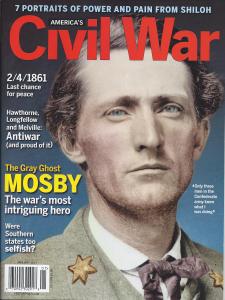

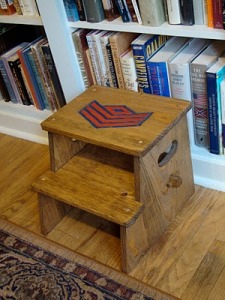
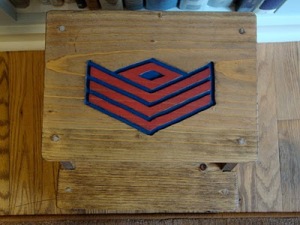
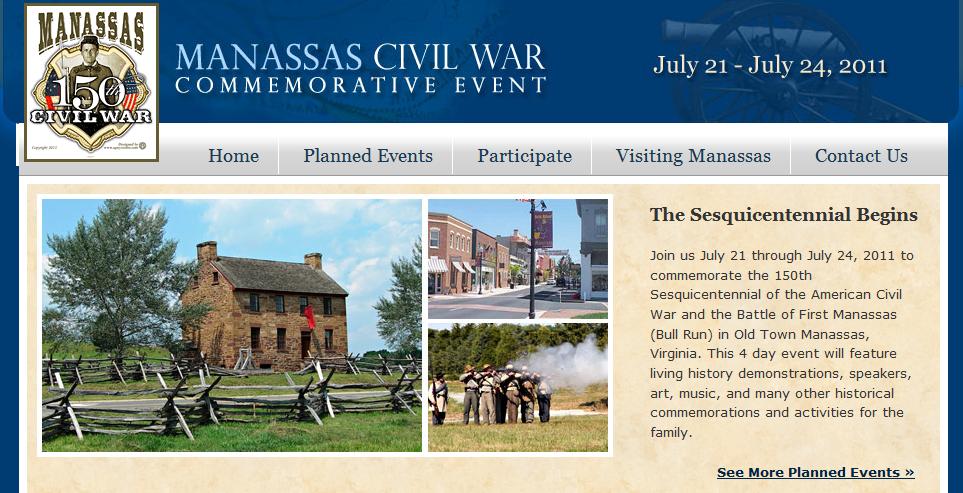

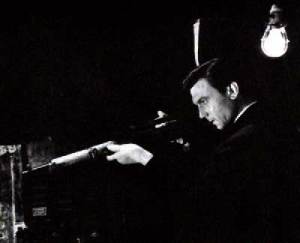


Recent Comments